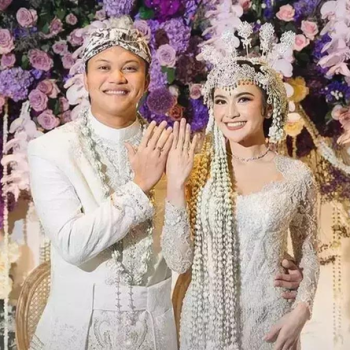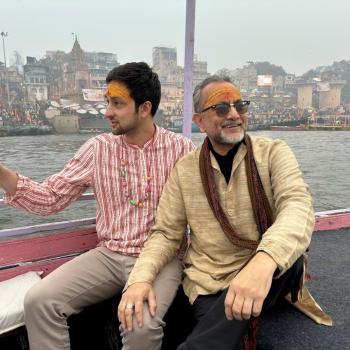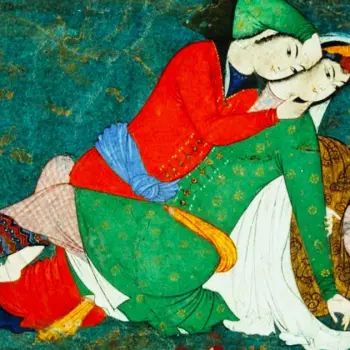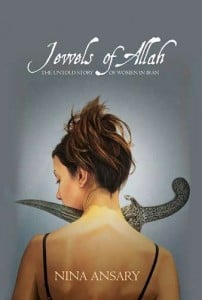
The series stars Hend Sabry as Ola, an Egyptian pharmacist under pressure to marry having reached the age of thirty and facing the social stigma of spinsterhood. Each episode focuses on a prospective husband and the series of unfortunate events that occur before Ola gives up the suitor as a lost cause, with Ola as a kind of “everywoman” who turns to the camera to address her remarks to audience.
The comedy is directed by Rami Abdel Imam, with a script co-written by Abdel Aal and a list of guest-starring celebrities. The famous names connected to the sitcom and the sensitive subject it deals with heightened the hype over it, especially in light of the worsening reputation of Egyptian television among pan-Arab audiences, who have turned to Syrian shows instead.
Unfortunately, 3ayza Atgawez will not do much to save that reputation. While the blog and the book were both popular, especially with the younger generation, responses to the series have been mixed at best, with much of the criticism directed at Sabry’s portrayal of Ola.
Ola is represented as a successful professional woman who is ambitious, witty, and determined. However, this strong representation is undermined by the fact that Ola is so determined to get married that her determination edges over into the obsession of a neurotic woman. This is problematic not because she’s a walking stereotype (I can’t think of a sitcom character who is not in some way a stereotype), but because the premise of the series depends on the audience empathizing with her. There are episodes when the comedy succeeds and we laugh with Ola at the tragicomic situations she finds herself in, but for the most part, we’re laughing at a woman willing to do anything to find a husband.
This flaw has led to accusations of heavy-handed acting on Sabry’s part, disappointing viewers who expected a performance on par with her previous successful roles. In the same way, many readers of the blog who enjoyed the tongue-in-cheek portrayal of the tribulations of an unmarried a thirty-something woman were disappointed when the narrator was turned into a stock figure. The stylized nature of the sitcom seems unsuited to the tone of the original material. This is exacerbated by problematic questions about what it means to portray marriage as the ultimate dream of a woman’s life, with several reviewers blasting the series for trying to return women decades to the past.
One saving grace is the fact that 3ayza Atgawez does tackle a real social issue rather than presenting another melodramatic plot divorced from the realities of Egyptian society. The show is embedded with references to politics, most notably in the episode where Ola creates posters urging people to “Vote Ola” and is accused of dissent, when she was only hoping to become president of the “I Want to Get Married Club.”
One of the most popular episodes features Ahmad El Sakka, who trades in his usual action hero roles to portray a corrupt police officer gathering intelligence on Ola and her family while courting her. Readers of the blog pointed out the contemporary reality of “respectable families” refusing suitors who work in the police, and in the show this is developed further as Ola initially boasts to her colleagues about her powerful fiancé, and considers whether she should “found a charity for the victims of Turkish serials or plastic surgery” once married, summing up the way the elite live in a world radically separated from the concerns of ordinary Egyptians. However, while scenes like this suggest the important questions raised by the content, it only emphasizes the fact that these questions are not dealt with in any sustained manner.
Unlike in the Egyptian play Ahwa Saada (Black Coffee), where delayed marriage is presented as a social problem with references to its economic causes, in the series finding a husband by any means is represented as Ola’s sole purpose in life. In one episode, Ola wishes for the days of matchmakers, and echoes concerns frequently voiced in the media over Egypt’s supposed spinster crisis.
While Egypt has more unmarried men than unmarried women, the media focuses almost solely on the latter. In an article commenting on this manufactured panic, Ursula Lindsey writes about a social study by Hanan Kholoussy that documents the way that men were shamed for being unmarried in the early 20th century. Although the fear over the rising number of unmarried woman is a symptom of a patriarchal society, Lindsey sees the reversal as positive, as she points out the phenomenon of delayed marriage for women means that “for a growing and vocal minority of Egyptian women” becoming marriageable is “no longer the foremost concern.”
What was finally disappointing about 3ayza Atgawez was not Ola’s determination to get married and her repeated failure to find a partner (a dynamic similar to the Bridget Jones Diary genre, written and made popular by women) but the complete absence of positive relationships between women. Throughout the show, men are represented as marginal, whether as suitors or brothers and fathers. Instead, there’s a cackling grandmother who crows over Ola’s every failure, while Ola and her mother are locked in a constant battle of wills. Then there’s her best friend, who betrays her and vice versa too many times to count, and her colleagues and female boss enjoy nothing more than gossiping about her misfortunes behind her back. The way her friends panic when one gets engaged and rush to find a groom to marry first, as well as the focus on gossip by female neighbors, coworkers and relatives show that the obsession over getting married is directly related to how other women see each other.
With Ola’s determination spiraling into desperation and the comedy spilling over into slapstick, the show missed the parody mark more widely as it went on, finally coming close to being as degrading as The Bachelor.















